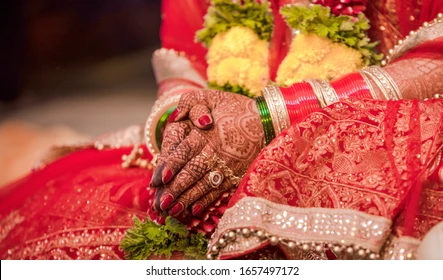
Breaking The Chains: The Burden Of Dowry And Bride Price
The Root Causes of Dowry Demands
One of the primary drivers of dowry is greed. Families of grooms often demand a bride, costly electronic goods, and other material possessions. However, this issue runs deeper than avarice. A deeply ingrained societal bias against daughters perpetuates this cycle. Sons are seen as assets, while daughters are viewed as liabilities, leading parents to invest less in their daughters' marriages than their sons'.
Also Read: Food and Medicine Convoys Dispatched to Upper Kurram Amid Aerial Surveillance
Some argue that if parents provide adequately for their daughters at the time of marriage, the in-laws are less likely to demand dowries. The underlying expectation is that parents should ensure their daughters start their married lives on stable ground, much like they do for their sons.
The Moral Crisis of DowryThe culture of dowry not only creates financial strain but also fosters exploitation. Families demanding lavish dowries often forget that their daughters may face similar humiliation. This vicious cycle transcends generations, yet society passively observes, failing to take meaningful action.
Adding to this cultural malaise is the tradition of the bride price. In areas like Khyber Pakhtunkhwa and Afghanistan, the groom's family is often obligated to pay a significant sum to the bride's family as a prerequisite for marriage. Failure to meet these demands can lead to the bride's family withholding consent for the marriage. These customs lack any basis in religion or ethics, originating from societal constructs that contradict Islamic principles and rational thought.
The Impact on MarriagesBoth dowry and bride price contribute to marriage delays, with many young couples remaining engaged for years due to these financial burdens. Families often resort to loans, leading to long-term debt and further economic instability. These oppressive practices have stripped the institution of marriage of its spiritual and emotional essence, turning it into a transactional arrangement fueled by materialistic demands.
The Islamic PerspectiveIslam advocates simplicity in marriage and emphasizes the provision of mahr (a gift from the groom to the bride) instead of dowry. Bride price and dowry demands find no support in Islamic teachings, which emphasize fairness, compassion, and equality. These outdated practices not only contradict Islamic values but also erode the sanctity of marriage, replacing it with financial and social exploitation.
A Call to ActionIt is high time educated and progressive individuals challenged these regressive customs. Raising awareness and promoting simpler, more meaningful marriages can liberate society from the shackles of dowry and bride price. By valuing daughters for their inherent qualities rather than their material contributions, we can foster a healthier and more equitable community.
Let us work towards a society where love, respect, and dignity replace the transactional norms that have long overshadowed the beauty of marriage

Legal Disclaimer:
MENAFN provides the
information “as is” without warranty of any kind. We do not accept
any responsibility or liability for the accuracy, content, images,
videos, licenses, completeness, legality, or reliability of the information
contained in this article. If you have any complaints or copyright
issues related to this article, kindly contact the provider above.






















Comments
No comment